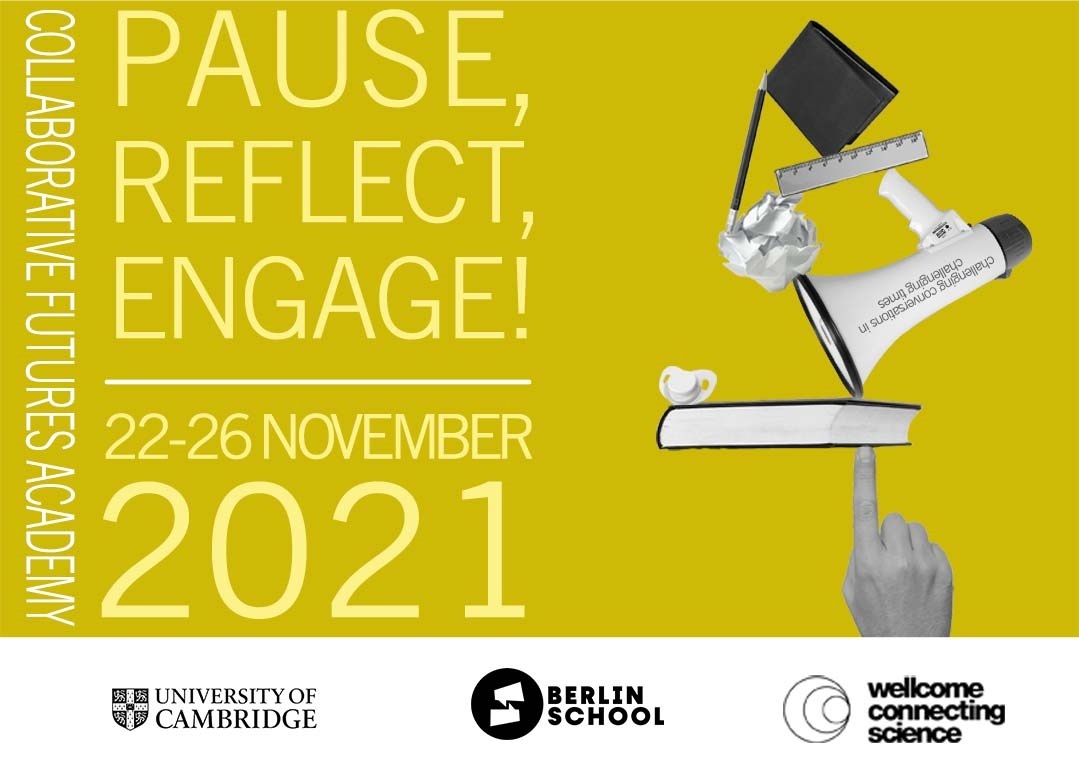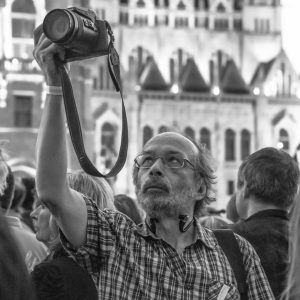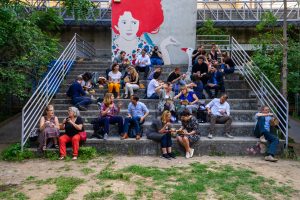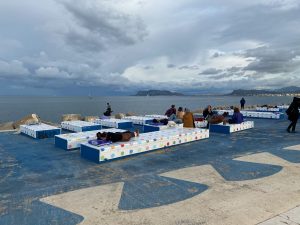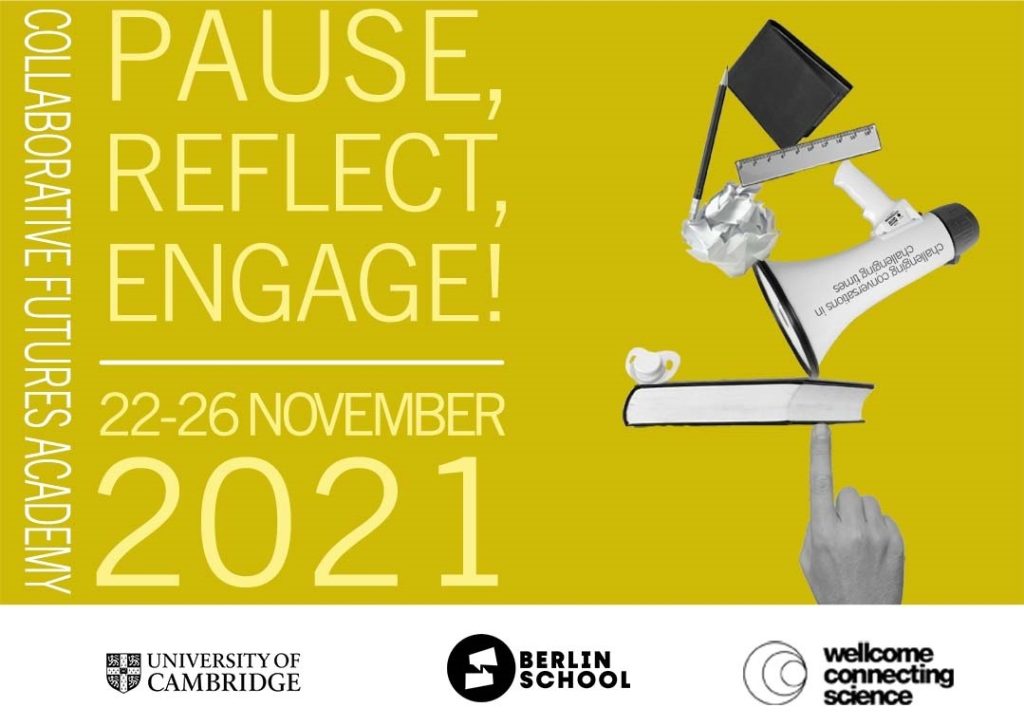
Leading with an invitation to “Pause, Reflect, Engage!”, the Collaborative Futures Academy took place online from the 22nd to the 26th of November. Organised by the University of Cambridge, Wellcome Connecting Science, and the Berlin School of Public Engagement and Open Science, this series of seminars and discussions were intended to spark off a collective reflection around the challenges of public engagement in research and how to push the boundaries of our engagement by stepping out of our comfort zone, addressing historic inequities and initiating challenging conversations.
The academy was organized in 5 days around the themes of: diversity, equity and inclusion; personal skills; challenging content; data security and cyberidentity; and collaboration. Moreover, the academy used an online format combining Zoom and Wonder that allowed the participation of a wide variety of researchers from different continents and time zones.
The proactive attitude of the participants at the academy and their open engagement in collective discussions and reflections was really refreshing and helped to quickly quash any taboos around issues of mental health, gender and “race”. The panellists of the first session (Em Dixon, Rahma (Red) Elmahdi, Dr. Furaha Asani) courageously opened up about their personal experiences, emphasizing the reality that approaching exclusion at an individual level can be exhausting and painful, and advocating for the creation of safe(r) collective spaces for public engagement. Their reflections highlighted that vulnerability is a gift, and there is no shame in asking for help.
The following day we discussed the process of stakeholder assessment and engagement, and the complexities of communication across cultures and hierarchies. Lottie Brand presented a talk on communication and psychological strategies for constructive conversations when dealing with controversial issues, and discussed the importance of moving beyond simple paradigms of right and wrong.
We went on to reflect collectively on the relevance of engaging in conversations that deal with challenging ideas, agreeing ultimately that care needs to be taken around our definitions of what is controversial and what is not. Controversy can easily be manufactured by a few loud people, and engaging in such discussions risks adding weight to issues that do not deserve such attention. Panellists Dr. Laura Davies, Dr. Anindya Raychaudhuri, and Anna-Zoë Herr shared with us their reflections on the relevance of emotions in controversial discussions, and how, for example, we need to allow ourselves to feel contradictory emotions in order to break the mould and imagine the impossible in a hopeful manner, whilst understanding that this hope is not simply a false promise, but a fight for dignity rooted in material demands.
Finally, Tyler Shores lead us in reflecting on our digital well-being, framing ‘productivity’ as a very subjective term in which one needs to find one’s own equilibrium. I personally felt a huge peace inside me in recalling the words of Dr. Furaha Asani in the first session: “We don’t need to be excellent every day of our lives”.
Overall, the Collaborative Futures Academy was a really rewarding and enriching experience thanks to the amazing team behind it. It not only provided us an platform to reflect collectively, but also created the basis for wider cross-sector collaborations in the future, meaning that the seeds it has sown will continue to grow!
